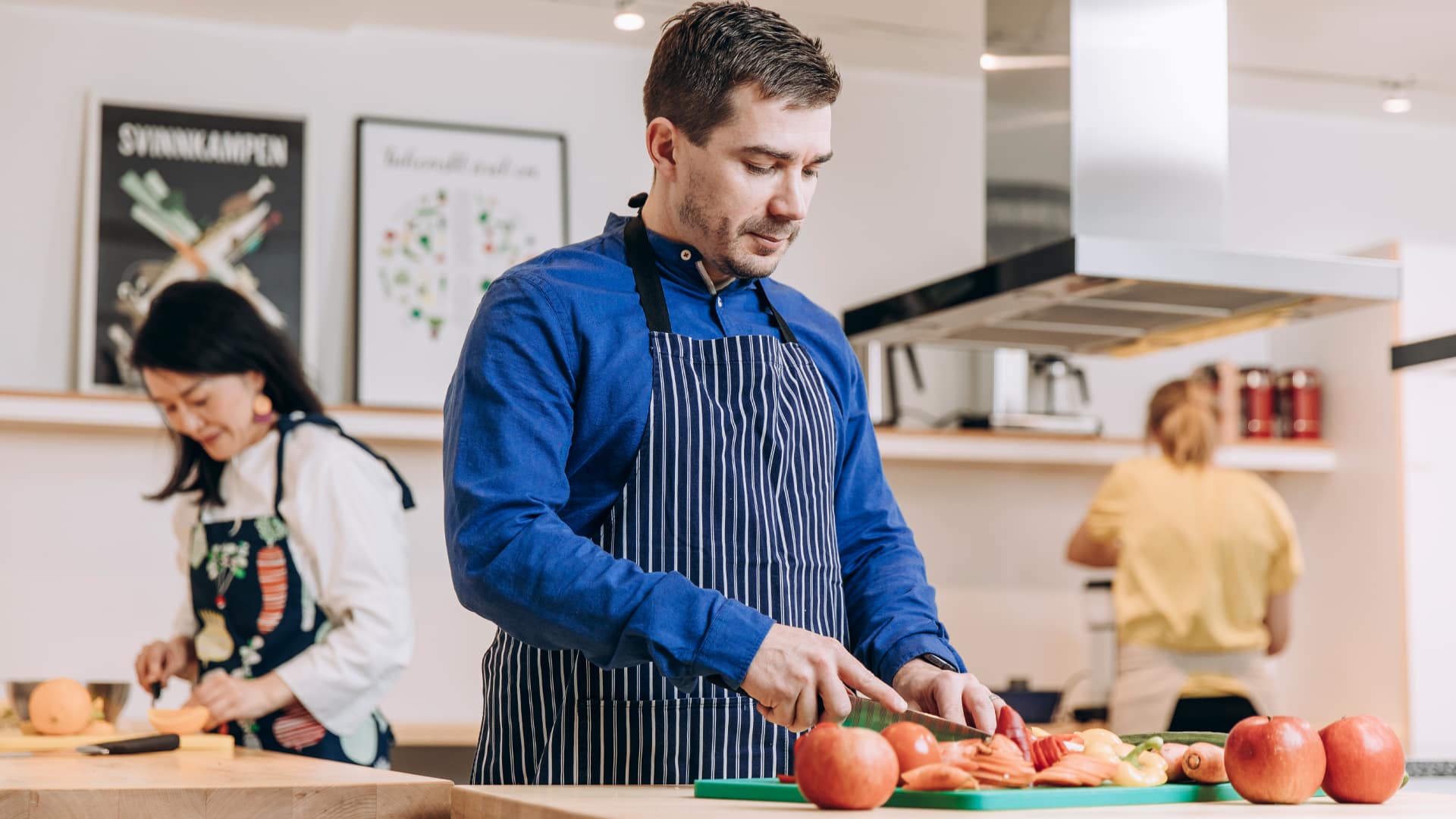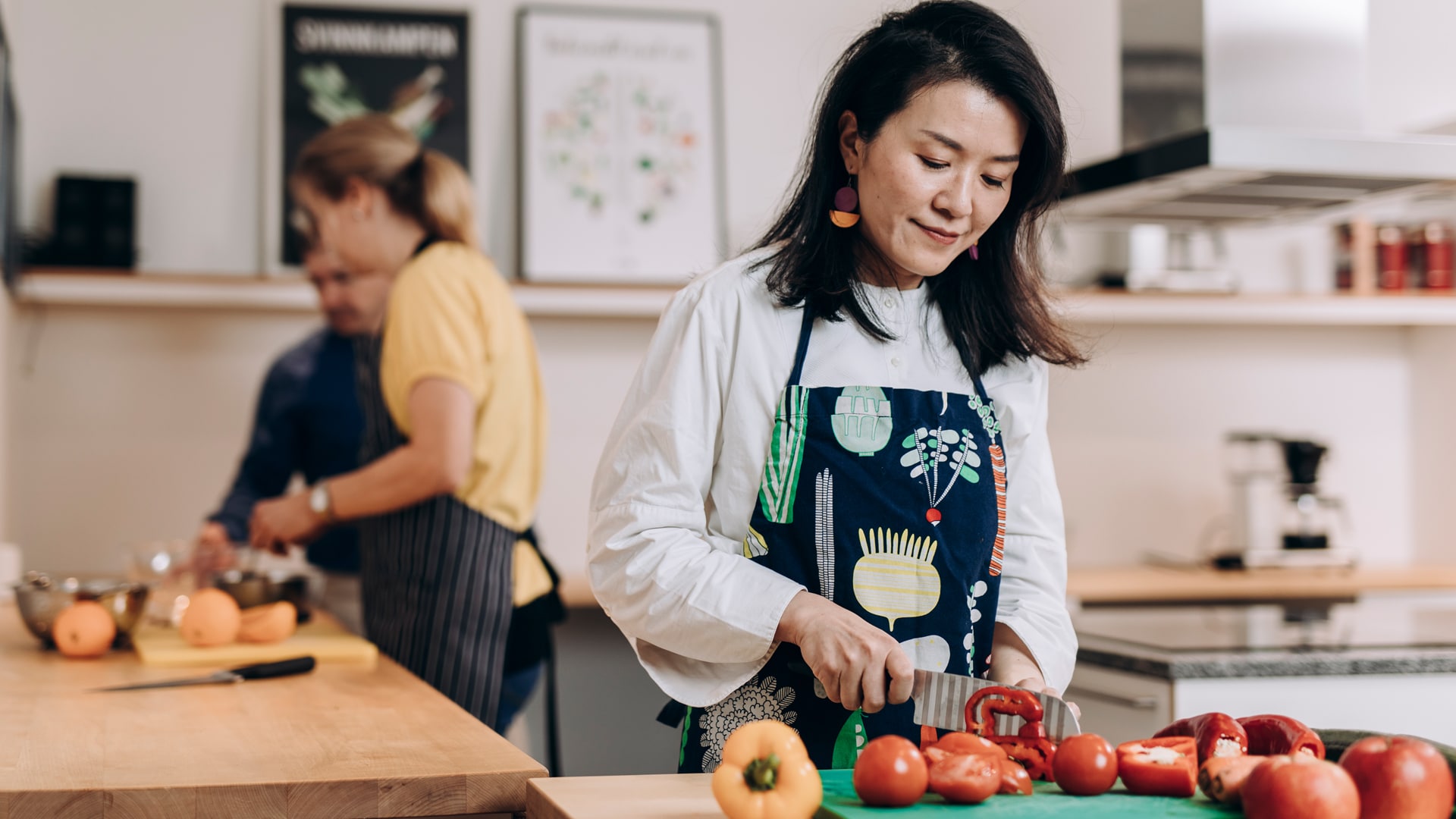
Problems related to eating
You don’t necessarily loose weight with current cancer treatments, because anti-nausea drugs are effective and usually do not cause vomiting. In this case, you can eat a varied diet as normal.
If you loose weight or don’t feel like eating
Some types of cancer or their treatments are still associated with a risk of weight loss. You may lose weight even if you like the food and don’t feel sick. Pain, a bloated stomach, bowel blockage, digestive problems, problems swallowing and not absorbing nutrients can also cause weight loss.
Malnutrition is common in cancer patients. Between 20% and 70% of people with cancer are malnourished. Malnutrition is usually associated with eating too little and losing weight, but it can also be caused by eating unbalanced, nutritionally deficient foods and not absorbing nutrients properly.
Around 60% of people with lung cancer are malnourished and have lost a significant amount of weight by the time they are diagnosed. For upper gastrointestinal cancers, the figure is 80%. Upper gastrointestinal cancers include oesophageal cancer, stomach cancer, intestinal cancer, pancreatic cancer and liver cancer.
If you lose weight
Try to get more energy from food. For example, you can increase your energy intake by eating snacks. Eat your evening snack late enough to avoid an overnight fast of more than 10-11 hours.
Good snacks include:
- Yoghurt, viili yoghurt, quark or a milkshake
- Protein pudding
- A cup of sugar-sweetened berry soup
- A bun
- A cup of cocoa
- A couple of tablespoons of nuts
- A food drink supplement that you can buy from a pharmacy.
You can also get more energy by adding oil, butter or cream to your food.
The body needs more protein than usual during cancer treatment. Try to include protein in all your meals. In addition to meat, fish and eggs, protein comes from tofu, soya, beans and lentils, and nuts. Dairy products such as milk, yoghurt and cheese also contain protein.
Eat about 100-150 g of fish/broiler/meat/tofu for lunch and dinner every day. Also eat protein for breakfast, snacks and dinner, such as milk, yoghurt, cheese, eggs or nuts.
If you’ve lost your appetite
- Drink only after a meal to avoid filling your stomach with fluid.
- Try to eat small amounts of high-protein, high-calorie food every 2-3 hours instead of three large meals. Protein-rich foods include meat, fish, eggs, dairy products, beans and pulses.
- Ask someone else to cook. Food can taste better if you haven’t made it yourself.
- Add calories to every food you eat (by using butter, milk, cream, sugar, honey and cheese).
- Eat cold or lukewarm food if the smell of food disgusts you.
- Choose nutritious drinks. Milk-based drinks contain more energy and protein than many other drinks, such as water, tea or coffee.
- Eat desserts. Foods containing fat or sugar are good sources of calories.
- Don’t be afraid to try new tastes. You might be surprised by what you like.
- Eat slowly and chew well.
- Don’t ask too much of yourself, it’s not usually the end of the world if you don’t like your food for a few days after treatment. Drinking is important, but you can make up for lost calories between treatments.
Changes in the sense of taste
- Choose foods with strong flavours if all the foods taste the same. Try adding garlic, lemon juice, herbs and spices, and marinades.
- Marinate food overnight or for a few hours. Make a marinade with one or two tablespoon of olive oil and herbs or spices of your choice. You can also add lemon juice.
- Avoid spicy foods if your mouth is sore or inflamed.
- Avoid very cold or hot foods.
- Keep your mouth clean and brush your teeth well.
Nutrients are not absorbed
Radiotherapy to the intestinal area can cause diarrhoea and affect the absorption of nutrients. If you have diarrhoea, ask your doctor for an anti-diarrhoea medicine.
If you have diarrhoea:
- Eat small portions
- Don’t eat fibre rich foods (like beans, broccoli, cabbage and fruit)
- Eat low-fibre food like white bread and rice, pasta and potatoes.
- Drink plenty of fluids
If you are constipated:
- Drink plenty of fluids. Water, prune juice and orange juice are good.
- Eat high-fibre foods such as fruit, vegetables, lentils, beans and whole grains
- Try to exercise every day
Lue lisää syöpää sairastavan ravitsemuksesta

Good nutrition
Good nutrition is particularly important if you have cancer, as it will help you stay as fit as possible.
Read article